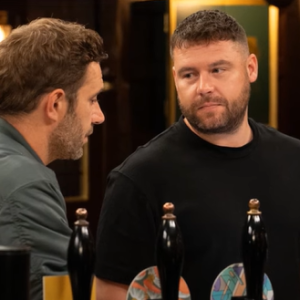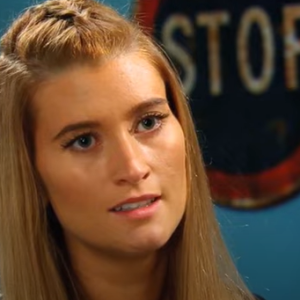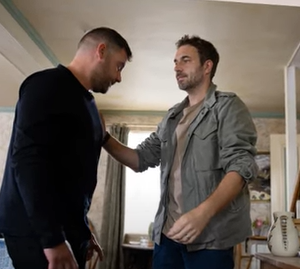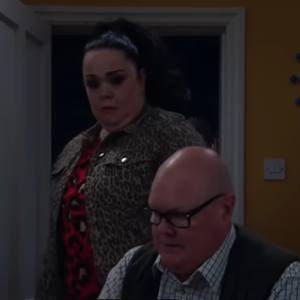John Sugden’s cruelty has long been the dark pulse running through Emmerdale’s recent episodes, but his latest scheme — a cold, calculated attempt to destroy Robert Sugden from the inside out — has misfired in spectacular fashion, and the fallout is reshaping loyalties in ways even he didn’t foresee. For weeks John has been exploiting Robert’s fragile mental state since his release from prison, sewing doubt and stoking fear to convince the village that Robert is unstable and dangerous. The opportunity to escalate arrived when Victoria, in a misguided bid to re-integrate her brother, asked Robert to look after their nephew Harry for the day. Robert, raw from the psychological toll of incarceration and haunted by episodes he barely understands, begged off, desperate to avoid a situation that might ignite his worst impulses. But Victoria pressed on, blinded by the hope of normality and the subtle pressure of family expectations, and that is when John slid in, smiling behind the curtain, with a plan that was as poisonous as it was simple: manipulate the moment so that Robert would appear a liability — unfit for fatherhood, for trust, for a future in the family fold.
The café scene should have been unremarkable — a man trying to bond awkwardly with a child while an ex watches on — but John’s interventions turned it into a setup. He whispered in Harry’s ear, nudging the boy toward behaviour he knew would strain Robert’s nerves. The drums began as a child’s exuberant experiment and, under John’s direction, became an auditory tormentor, a trigger pulled methodically to see if Robert would crack. When Robert, overwhelmed and terrified at what he feared he might become, snapped and screamed at Harry, the moment was captured in the cruel mirror John had set up: a desperate outburst reframed as proof of volatility. John fed that distorted narrative to Victoria and anyone willing to listen, painting Robert as a ticking time-bomb whose presence near children should be forbidden. It was textbook manipulation — use the guilt and stigma Robert carries to isolate him, to make him feel small, to strip away his supports — and for a moment it seemed devastatingly effective.
But villainy often miscalculates, and John’s arithmetic was fatally wrong about human decency. Instead of leaving Robert friendless and exposed, the aftermath of the scandalous scene produced an unexpected countercurrent: sympathy, curiosity and, crucially, the lingering care of Aaron Dingle. Aaron, who has his own complicated history with Robert, didn’t immediately swallow the tidy version of events John peddled. When Jon sought to weaponise the incident further by gaslighting both Harry and the broader family into believing Robert was a threat, Aaron’s instincts nudged him toward a different response. His private conversation with Robert — tentative, checking the cracks rather than condemning them — revealed a tenderness that Jon hadn’t factored into his scheme. Rather than recoiling, Aaron asked questions, listened, and showed concern for Robert’s wellbeing. That cautious compassion, small but real, started to glue a chink in Jon’s campaign: instead of isolating Robert completely, the gambit cultivated a bridge where a wedge was intended.
The irony is delicious and brutal: John’s attempt to manufacture Robert’s ruin has, in the process, pushed Aaron and Robert into an orbit neither fully expected. What John meant to be character assassination has instead rekindled empathy and reopened lines of communication between two men with a fraught past. Aaron’s response — a mixture of protectiveness and genuine worry — complicates the neat revenge John hoped to script. It humanises Robert in front of the audience and, more dangerously for Jon, it signals to viewers that Robert may not be as alone as he appears. The twist is emotional as much as plot-driven: Jon’s campaign to depict Robert as a menace only highlights the depth of those prepared to look beyond one explosive moment and see the scared, fragile person behind it. In that way, the villain’s cruelty inadvertently forges new alliances and introduces moral complexity into relationships previously defined by guilt and blame. 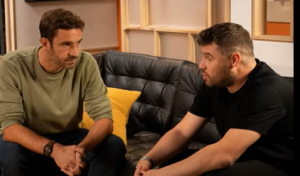
Emmerdale’s storytelling has always thrived on reversals of expectation, and this latest arc positions John Sugden as an even more dangerous antagonist precisely because he underestimates the human impulse to care. The backfiring of his plan sets the stage for escalating conflict: Jon will not tolerate this unexpected empathy, and his reaction — whether it becomes more manipulative, more violent or more destructive in subtler ways — is the fuel for future episodes. Meanwhile, Robert’s precarious mental health remains central, and Aaron’s involvement complicates both men’s trajectories, promising tender moments of support counterpointed by the looming threat that Jon will douse that flame before it can burn steady. For viewers, the delicious cruelty of this twist lies in its unpredictability: the man trying to end a life of trust and repair only succeeds in exposing how much work still needs to be done, and how resilient compassion can be when someone chooses to look beyond one damaging outburst. As the village watches the dominoes fall, one truth becomes clear — John has created a problem he cannot easily control, and the fallout is likely to redefine relationships in Emmerdale for a long time to come.
